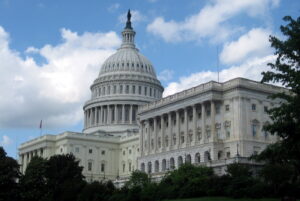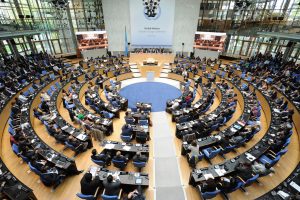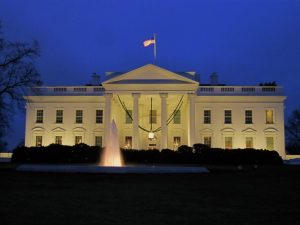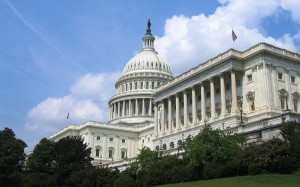30 item(s) were returned.
Resident Senior Fellow, Energy
R Street
There is an increasing disconnect between the sort of climate objectives that are advocated for politically (1.5 degrees Celsius, net-zero emissions by 2050, etc.) and the feasibility of achieving a massive global clean energy transition within the ever-shrinking carbon budget. This widening gap is reflected in seminal “transition scenarios” like the International Energy Agency’s (IEA) Net-Zero Emissions Report, or the International Renewable Energy Agency’s (IRENA) 1.5 Pathway report attempting to lay out a roadmap to these hoped-for climate objectives. The kicker is that these studies can’t make the math work without leaning heavily on huge amounts of carbon capture that… [more]
View InsightAs part of OurEnergyPolicy (OEP)’s initiative to formulate a set of principles to guide the development of sound energy policy, OEP hosted a webinar featuring legislators and energy leaders offering their views and expertise on the subject. With ideas from the webinar, this online discussion, and stakeholder engagement, OEP plans to release a document that can help guide policy creation at the federal, state, and local levels. In her opening remarks, Senator Lisa Murkowski (R-AK) listed five principles that she encourages members of Congress and stakeholders to keep in mind: Focus on the future, but make sure your goal… [more]
View InsightExecutive Director
Utah Governor's Office of Energy Development
As new and cleaner energy options are deployed, our national energy portfolio is transforming faster than ever before. Facing changes occurring across our power, transportation, and resource systems, Utah has chosen an all-of-the-above state energy policy. Embracing energy diversity and focusing on efficient markets, technology, infrastructure, and new partnerships will create an energy economy that supports our state’s economic and environmental goals. As discussed at Utah Governor Gary Herbert’s recent energy summit, the Governor’s Office of Energy Development (OED) has worked to advance Utah’s energy agenda with smart and innovative solutions. Among the OED’s significant initiatives are projects that invest… [more]
View InsightFrom attempts to bail out coal and nuclear to a Green New Deal, 2018 was an interesting year for energy policy. With a newly divided Congress taking office in January, it seems likely that disagreements regarding the future of the energy industry will continue in 2019, though there may be areas with potential for bipartisanship. Outside of the federal government, it can be expected that 2019 will continue the trend of many state and local governments, as well as private organizations, being active in shaping the direction of our energy sector. A major trend of 2018, which will continue into… [more]
View InsightInternational Climate Advocate, Global Advocacy, International Program
Natural Resources Defense Council
The use of fossil fuels drives climate change. Unfortunately, the path to clean sources of electricity, heat, and transport is impeded by the continued government subsidization of fossil fuels. In our recent Scorecard measuring the US against other G7 countries on progress in eliminating fossil fuel subsidies, the US ranked last, spending over $26 billion a year to prop up fossil fuels. Fossil fuel subsidies waste money and come at the expense of public health, local communities, and the climate. The US still provides subsidies for fossil fuel exploration, mining, production, and consumption. The US subsidizes more oil and gas… [more]
View InsightConsultant
Independent
The United States and world are facing a crisis of enormous magnitude if the global warming problem is not addressed properly. Every country in the world, except the current U.S. administration, supports the Paris climate agreement goal limiting the rise in global average surface temperature to 2°C (3.6°F). The consequences of failure could be a catastrophic future: Flooding from rising sea levels, more severe hurricanes/heat waves/wildfires, crop failures and droughts, and greater stress on an already aging infrastructure. Climate scientists generally agree carbon emissions should be reduced to near zero by mid-century to avert catastrophic global warming. But the voluntary… [more]
View InsightAssociate Professor of Environmental Engineering
Rice University
President-elect Donald Trump has only vaguely defined his plans for energy policy, via his website and campaign statements and tweets. As a result, one can only speculate what changes to expect from Trump energy policies. Nevertheless, a recent report by S&P Global Platts aimed to predict how electricity will be generated under Trump energy policies. The analysis assumed Trump would allow subsidies for renewable energy to continue their scheduled scale down through 2020, and enact no new policies to support wind or solar. This is consistent with recent reporting indicating that Trump does not plan to act against renewable energy… [more]
View InsightClarence Efroymson Professor of Economics
Butler University
As I explain in U.S. Energy Policy and the Pursuit of Failure, bipartisan compromise is possible and has led to policy change in the past. However, that change has almost always been bad for the country. Bipartisanship has given us ill-conceived and wasteful programs for synthetic fuels, breeder reactors, “super cars,” windmills, and ethanol. The problem runs much deeper than the current President or the balance of parties in Congress. For the past forty years, U.S. energy policy has been premised on false concepts of markets, government, technology, and history. The basis for this policy paradigm goes something like this: The… [more]
View InsightAs midterm elections quickly approach, questions and predictions continue about which energy issues will garner the most attention over the next two years from Congress and other policymakers and influencers. While some new topics have emerged to dominate energy headlines more recently, other issues, such as nuclear waste management, continue to be relevant. Please share your input on what topics require attention from our federal policymakers. [poll id=”3″]
View InsightFreelance projects of interest
Retired
A National Energy Program (NEP) is proposed to eliminate the gap between U.S. oil consumption and production and significantly reduce green house gas emissions in a decade to place our nation on the road to a sustainable energy future. With domestic natural gas plentiful, eliminating the “oil gap” will achieve energy independence. The international Energy Agency forecasts this gap to be approximately seven million barrels and day (MBD) in 2025 [1]. Forecasts vary from 4-7 MBD depending on source used. Current forecasts are “not real world”; because they are based on continuation of business as usual conditions in an increasingly… [more]
View Insight






